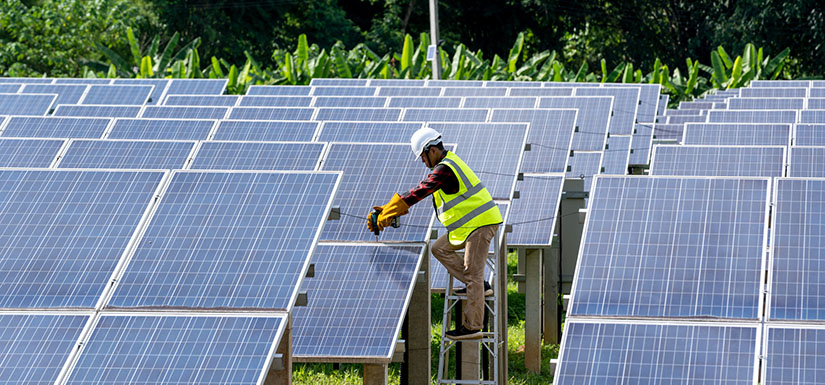Thailand Partnership
Through the Advanced Energy Partnership for Asia, NREL is working with policy makers and planners in Thailand to understand the potential applications and values of emerging technologies.

The question of what role emerging technologies plays in power sector transformation has gained prominence with the increasing need for power system flexibility and rapid declines in storage technology costs. Through Advanced Energy Partnership for Asia, the USAID-NREL Partnership is working with partners in Thailand to understand the impacts of electrifying the country's transport sector, deploying battery energy storage, and other emerging energy technologies.
Activities
To understand the projected impacts to the biofuel industry (such as jobs and revenue losses) of scaling up electric vehicles, the Advanced Energy Partnership for Asia and Thailand's Department of Alternative Energy Development and Efficiency (DEDE) worked together to perform an impact analysis using the International Jobs and Economic Development Impact (I-JEDI) tool.
The objective of NREL's engagement with DEDE was to support the development of this tool module and build DEDE's capacity to independently conduct further studies. This model will help DEDE estimate impacts on the biofuels industry and thus design EV deployment policies that consider just transition considerations for affected workers or economic activities. Also, by working closely with DEDE throughout this process, this project builds technical knowledge and capacity within the organization to expand the use of the model into other industries, or design new models.
The Electricity Generation Authority of Thailand is interested in understanding the applications of energy storage and how it can optimize deployment of equipment, from a technical and economic perspective, to address operational challenges on its power system.
In support of this effort, the Advanced Energy Partnership for Asia conducted modeling and analysis to investigate the economic feasibility of deploying battery energy storage systems in Thailand and provided capacity building support to the Electricity Generation Authority of Thailand technical staff through virtual trainings on battery energy storage systems global best practices, methods, and processes.
In 2021, the Advanced Energy Partnership for Asia worked with the Thailand Office of Energy Regulatory Commission and other stakeholders on their efforts to develop technical codes and standards to govern the installation and operation of battery energy storage systems.
When done successfully, battery energy storage systems can be used as a tool to improve power system flexibility, defer transmission upgrades, and meet clean energy objectives.
Key Considerations for Adoption of Technical Codes and Standards for Battery Energy Storage Systems in Thailand, USAID Technical Report (2021)
Key Considerations for Adoption of Technical Codes and Standards for Battery Energy Storage Systems, USAID Southeast Asia EDGE Hub Webinar (2022)
In 2017, NREL and other partners such as Lawrence Berkeley National Laboratory, USAID Clean Power Asia, and Chulalongkorn University's Energy Research Institute, conducted a study on the impact of distributed photovoltaics (DPV) on utility revenue and rates in Thailand. The study offers insights into the electricity regulatory framework in Thailand, various potential compensation schemes for DPV, and their impact on distribution utility revenue and customer tariffs when DPV is installed by customers in Thailand.
Overall, this study demonstrates that policymakers can move forward with a DPV interconnection and compensation policy in Thailand without concerns about utility revenues or retail tariff impacts. Should concerns still exist, they can consider relatively common policy tools such as systemwide DPV deployment caps or retail tariff impact caps at the national level.
Distributed Solar: Evaluating the Financial Impact on Utilities in Thailand, Climate Links (2017)
Understanding the Impact of Distributed Photovoltaic Adoption on Utility Revenues and Retail Electricity Tariffs in Thailand, NREL Technical Report (2021)
Understanding the Impact of Distributed Photovoltaic on Utility Revenues and Retail Electricity Rates: Case Study on Thailand, Clean Energy Solutions Center Webinar (2018)
Toolkits Used
Renewable Energy Data Explorer (RE Explorer)
Contact
Share

